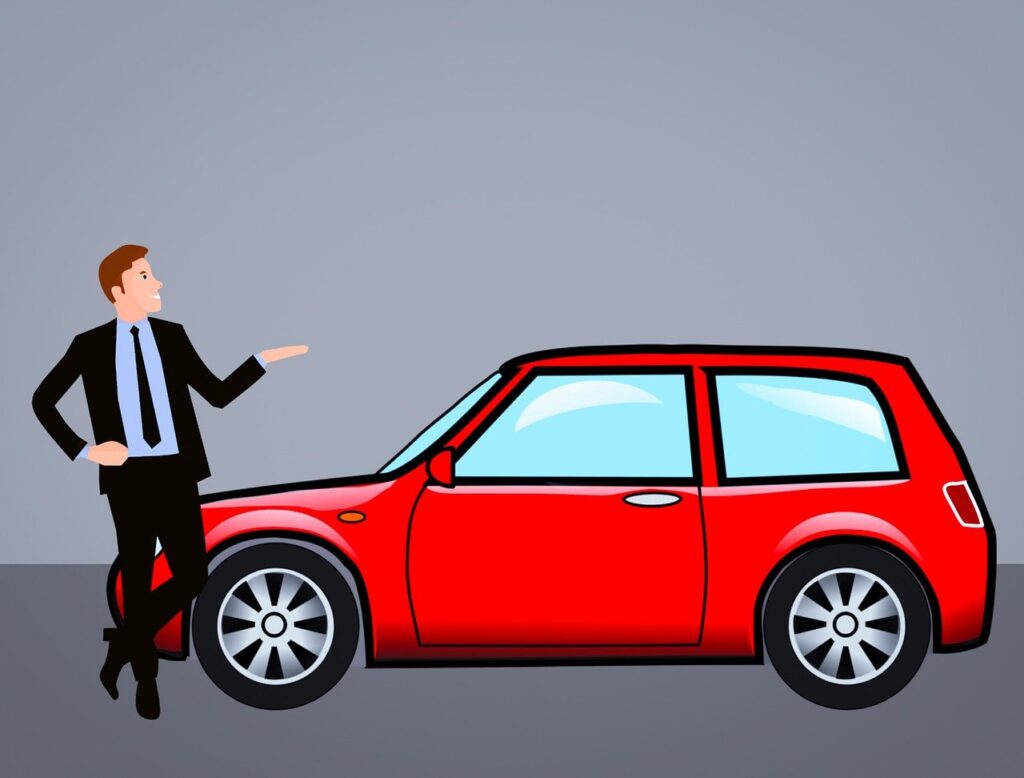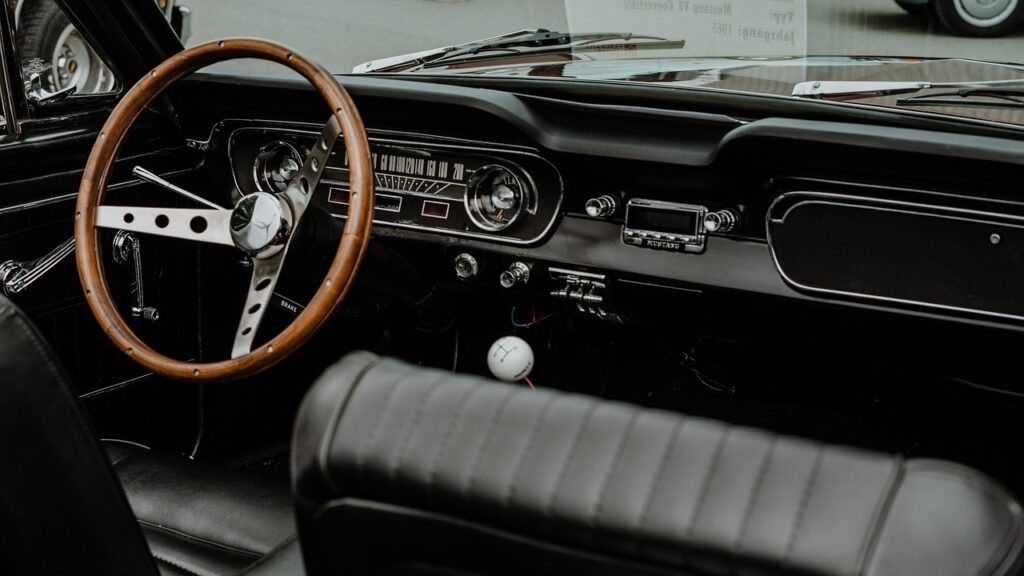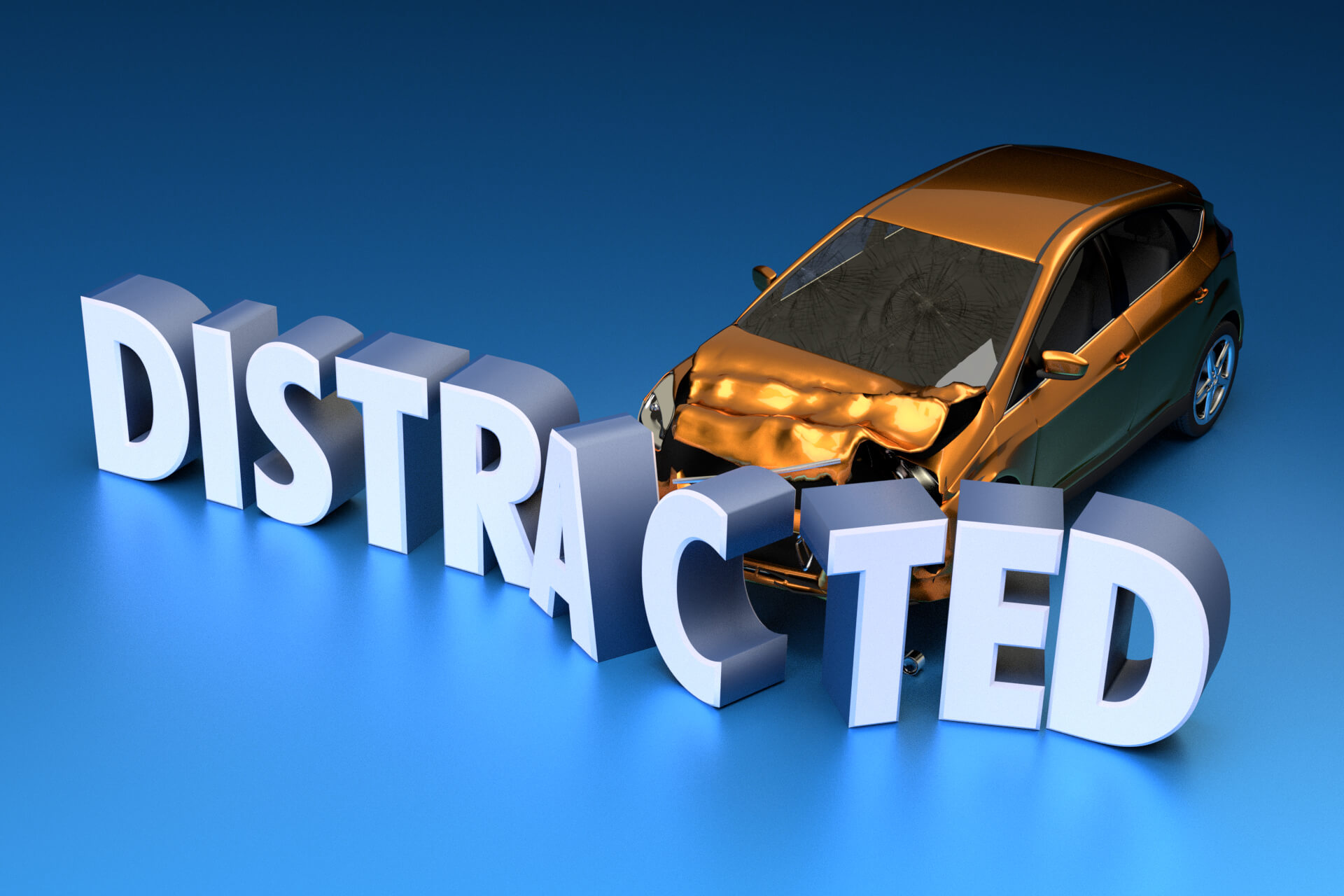
Buying a car, especially a used one, has become an increasingly complex endeavor in recent years. With new car prices at record highs and used car inventories fluctuating, many prospective buyers are expanding their search beyond local dealerships and venturing into out-of-state markets. This approach can unlock a wider selection of vehicles and potentially better deals that might not be available close to home, offering compelling reasons to look further afield.
While the allure of finding that perfect vehicle or securing a significant saving in another state is strong, the process introduces distinct considerations and challenges compared to an in-state purchase. Navigating differing state regulations, verifying vehicle authenticity remotely, and managing cross-state logistics demand a structured and informed approach. Without the correct information and diligent preparation, what initially seems like a great deal could quickly become a source of unexpected costs and frustrations.
This in-depth guide is designed to equip you with the essential knowledge and actionable steps required to confidently and safely buy a used car out of state. Drawing on objective analysis and practical advice, we will walk you through the entire process, from initial research to final registration, ensuring you make an informed decision and protect your investment every step of the way.
1. **Why Shop Out of State?**There are several compelling reasons why a buyer might choose to look for a used car beyond their home state’s borders. One primary motivator is the potential for better pricing. Car values and demand can vary regionally, meaning a vehicle that is expensive or in high demand locally might be available at a more competitive price in another area where demand is lower.
Another significant advantage is a wider selection of vehicles. If you are searching for a specific make, model, or configuration that is rare in your local market, expanding your search nationwide drastically increases your chances of finding it. For instance, someone in sunny California might find a better deal on a convertible in the Midwest, where demand for such vehicles could be lower.
Regional climates also play a crucial role in vehicle availability and condition. Buyers in states prone to harsh winters and road salt might seek out vehicles from drier, warmer climates to avoid rust and corrosion. These rust-free vehicles often offer greater longevity and better structural integrity, making them a wise long-term investment.
While the benefits are clear, it is essential to determine if the potential savings and wider selection outweigh the additional costs and complexities involved. These extra costs, such as shipping or travel expenses, must be factored into your overall budget to accurately assess if an out-of-state purchase truly offers a better value than buying locally.
Read more about: 14 High-Potential Small Business Ideas Poised for Exceptional ROI in 2025
2. **Initial Research: Finding Your Vehicle**The journey to a successful out-of-state purchase begins with thorough online research. Utilizing reputable websites and platforms that allow for nationwide searches is paramount. Websites like Kelley Blue Book, for example, offer extensive listings where prospective buyers can apply filters to search for a specific model, price range, color, and model year, allowing you to cast a wide net.
Once potential vehicles are identified, it’s crucial to delve deeper into their presentation. Many dealerships and private sellers now provide comprehensive online listings, including multiple photographs from various angles. More savvy buyers can even request or find video walkarounds, which offer a more immersive view of the car’s interior and exterior, providing a better feel for its condition without requiring an immediate trip.
For new vehicles, always ask for a copy of the window sticker, also known as the Monroney label. This sticker lists official information, including the Vehicle Identification Number (VIN), all standard and optional equipment, and fuel economy ratings. Having this document can prevent surprises regarding the wrong color or equipment package, ensuring the final sale matches your expectations.
When considering a used vehicle, while original window stickers are typically not available, dealerships often feature full-featured used-car pages on their websites with detailed photos, videos, and comprehensive information. Regardless of whether it’s new or used, performing your due diligence upfront is critical to avoid frustration later, particularly concerning vehicle specifications and history.
Read more about: Beyond the Bling: 9 Frugal Habits Millionaires Embrace to Build and Sustain True Wealth

3. **Understanding Incentives and Costs**Before committing to any out-of-state purchase, it is imperative to obtain a full summary and breakdown of all costs and fees from the dealer. This goes beyond the sticker price and includes crucial elements like destination fees, all dealer fees, title processing costs, and any extras that may be bundled into the sale. Insist on seeing the window sticker or Monroney label to review these charges meticulously.
It is important to recognize that manufacturer incentives and rebates can vary significantly from one state to another. What might be available at a dealership in one state may not be offered in another. Always confirm any and all incentives or rebates and ensure they are provided to you in writing. When dealing with private sellers, incentives are typically not a factor in the transaction.
Always be prepared to negotiate the price, not just of the vehicle itself, but also of any optional add-ons. Don’t hesitate to question anything you don’t believe you need, such as window tinting, fabric protection, or extended warranties, which can inflate the final cost. Leveraging resources like the Kelley Blue Book value for the used vehicle you are interested in provides a strong basis for your negotiation, ensuring you pay a fair market price.
Finally, remember to factor in the often-overlooked cost of getting the car home. Whether you plan to drive it yourself, incurring fuel and accommodation expenses, or opt for a professional shipping service, these transportation costs can add significantly to your bottom line. Weighing all potential shipping and road trip expenses is a vital step before taking the leap to buy a car out of state.
Read more about: Your Definitive 2025 Guide: What to Check When Buying a Used Electric Vehicle

4. **Obtain a Vehicle History Report (VHR)**For anyone considering a used vehicle, whether in-state or out-of-state, obtaining a comprehensive vehicle history report (VHR) is an absolutely non-negotiable step. This report serves as a critical diagnostic tool, revealing a wealth of information about the car’s past that is not immediately apparent through a visual inspection, providing invaluable peace of mind and protecting against unforeseen issues.
Services like AutoCheck or Carfax compile detailed data from various sources to provide a clear picture of a vehicle’s life. These reports typically detail crucial information such as accident history, including any reported collisions or damage, maintenance intervals, and potential odometer discrepancies that could indicate mileage tampering. They also verify the number of previous owners and can flag title brands like salvage, flood, or fire damage.
Dealers typically provide a VHR as a standard part of their sales process for used vehicles. However, if you are buying from a private seller, you may need to proactively request one. If the seller does not provide it, you should ask for the vehicle’s license plate number or, more reliably, its Vehicle Identification Number (VIN). With the VIN, you can independently obtain a report from services like Carfax or AutoCheck.
Understanding the details within a VHR is essential for assessing the vehicle’s true condition and value. It helps identify potential hidden problems that could lead to significant repair costs down the line. This objective, data-driven analysis is a cornerstone of smart car buying, enabling you to make a thoroughly informed decision based on facts rather than assumptions.
Read more about: The 14 Essential Questions to Ask Before Buying a Car: Your Comprehensive Guide to Safety and Value
5. **Get a Pre-Purchase Inspection (PPI)**Beyond the vehicle history report, a pre-purchase inspection (PPI) conducted by a certified, independent mechanic is an indispensable safeguard for any used car purchase, especially when buying out of state. While it adds an extra step to the process, the insights gained from a PPI can save buyers from significant financial regret and unexpected repair expenses.
An independent PPI provides an unbiased, expert assessment of the vehicle’s mechanical and structural integrity. The mechanic will scrutinize components that are not visible during a casual visual check, looking for potential issues such as rust, undisclosed body damage from past accidents, and any underlying mechanical or electrical problems. This inspection can uncover hidden flaws that might not be apparent to the untrained eye.
Arranging a PPI for an out-of-state vehicle can be more challenging than a local inspection, but it is certainly feasible. Buyers should seek a qualified mechanic in the seller’s geographic area. It’s often beneficial to find a mechanic who specializes in the brand of vehicle you are considering, as they will have in-depth knowledge of common issues and maintenance requirements. Many mobile mechanics also offer this service and can provide detailed reports directly to you.
The cost of a PPI typically ranges between $100 and $200, a small investment considering the potential for identifying major problems that could cost thousands to repair. This inspection empowers you with leverage in price negotiations and, more importantly, provides critical assurance about the vehicle’s condition, helping you avoid purchasing a car with serious, undisclosed issues.
Read more about: Don’t Get Stuck with a Lemon: Your Ultimate 2025 Guide to Spotting Used Car Red Flags Before You Buy

6. **Verify Seller and Title Details**One of the most crucial steps in ensuring a safe out-of-state used car transaction is meticulously verifying the seller’s identity and the authenticity of the vehicle’s title. This fundamental precaution helps prevent fraud and ensures a legal transfer of ownership. Always confirm that the seller’s identification matches the name on the vehicle’s title, establishing legitimate ownership.
Furthermore, it is absolutely essential to compare the Vehicle Identification Number (VIN) physically located on the car with the VIN printed on the title document. Any discrepancy, no matter how minor, should be a red flag and warrants immediate investigation. Equally important is verifying that there are no active liens recorded on the title, as any outstanding financial claims against the vehicle would transfer with the purchase, making you responsible for the debt.
When buying from a private seller, an additional layer of diligence is required, especially if the seller has an outstanding auto loan. In such cases, the seller may not physically possess the title, as it would be held by their lender. Buyers must involve the seller’s lender in the conversation to understand the process for a seamless title transfer, ensuring the lien is satisfied and the title is released to you or your lender without a hitch.
A comprehensive bill of sale is an indispensable legal document for out-of-state transactions. This document should explicitly include the VIN, make, model, year, the agreed purchase price, the date of sale, and the full names and addresses of both the buyer and the seller. This detailed bill of sale serves as irrefutable legal proof of the transaction and the official transfer of ownership, protecting both parties.
Read more about: Vehicle Emissions Testing: A Comprehensive Consumer Guide to Understanding and Navigating Smog Checks
7. **Emissions and Registration Requirements**When purchasing a vehicle out of state, a critical factor often overlooked until too late is ensuring that the car meets the emissions and safety standards of your home state. Each state sets its own criteria, and a vehicle that is perfectly eligible for registration in the state where it is being sold may not necessarily be compliant with the regulations where you live, potentially leading to significant hurdles.
Some states, notably California, have significantly stricter emission regulations compared to others. The California Air Resources Board (CARB) has specific requirements, and vehicles that comply with these regulations typically feature a Vehicle Emissions Information label in a visible location on the vehicle. If you live in a state that follows California’s guidelines, it is paramount to verify that the out-of-state vehicle meets these stringent smog standards.
For any used vehicle acquired out of state, it is advisable to ask the seller to provide proof that the vehicle has passed a recent inspection, especially for emissions. This step is crucial unless you are intentionally purchasing a classic car or a “clunker” with plans to fix it up, where specific exemptions might apply. Without this proof, you could face unexpected costs or delays in getting your vehicle registered.
Before making the leap to buy, buyers must proactively check the specific emission and safety requirements in their home state. Contacting your local Department of Motor Vehicles (DMV) or equivalent agency will provide the definitive information needed to ensure you’ll be prepared for registration once the vehicle is in your possession and gets home, avoiding any last-minute complications.
Read more about: Vehicle Emissions Testing: A Comprehensive Consumer Guide to Understanding and Navigating Smog Checks

8. **Negotiate the Price Effectively**After completing thorough inspections and obtaining all necessary reports, the next critical step is to engage in price negotiation. This process requires a clear understanding of the vehicle’s market value, leveraging the research conducted earlier through resources like Kelley Blue Book. Having an established fair market price provides a strong foundation for your discussions, ensuring you are not overpaying for the vehicle.
Be prepared to negotiate not only the base price of the car but also any optional add-ons or additional services the dealer may propose. Many dealerships include items like window tinting, fabric protection, or extended warranties that can significantly inflate the final cost. Diligently question the necessity of these extras and do not hesitate to decline anything you do not genuinely need or desire.
Your pre-purchase inspection report can also serve as a powerful negotiation tool. If the mechanic identified any existing or potential issues, these can be used to request repairs before the sale or to negotiate a lower purchase price to compensate for future repair expenses. This objective data provides concrete reasons for your proposed adjustments, reinforcing your position as an informed buyer.
Should you be trading in a vehicle, research its trade-in value beforehand using reputable valuation tools. This knowledge empowers you in negotiations, ensuring you receive a fair amount for your existing car. For new vehicles, inquire about any manufacturer-to-dealer incentives or rebates that might not be nationally advertised but could reduce your overall cost or improve financing terms.
Read more about: Navigating the 2025 Car Warranty Changes: A Consumer Reports Guide to Protecting Your Used Car Investment
9. **Secure Your Payment**Arranging secure payment for an out-of-state vehicle purchase is a critical phase that demands careful consideration to protect your financial interests. For large transactions, especially with private sellers, a personal check or large cash sum is generally not advisable due to security risks and verification challenges across state lines. Understanding the available secure payment options is paramount.
Reliable methods for out-of-state payments include cashier’s checks, bank wire transfers, or utilizing escrow services. Cashier’s checks offer a seemingly secure option, but it is crucial to verify their authenticity; if traveling in person, meeting at the issuing bank to finalize the transaction provides the highest level of assurance. This step helps mitigate the risk of fraudulent checks, which can be a significant concern.
Bank wire transfers are a common method for dealership purchases. However, always ensure you are wiring funds directly to a reputable and verified dealership account, never to an individual or an unverified third party. For private party transactions, an escrow service like Escrow.com can provide an added layer of security. This service holds the funds until both parties confirm that all terms of the sale, including title transfer and vehicle delivery, have been met.
If you plan to finance the vehicle, your lender will handle the payment directly with the seller or dealership. In such cases, ensure your lender is fully involved in the process, especially if there is an existing lien on the vehicle from a private seller’s previous loan. This ensures a seamless transfer of the title to you or your new lender once the previous lien is satisfied.
Read more about: Navigating the 2025 Car Warranty Changes: A Consumer Reports Guide to Protecting Your Used Car Investment

10. **Understand and Manage Sales Taxes**One of the most frequently misunderstood aspects of buying a car out of state involves sales taxes. It is a common misconception that purchasing a vehicle in a state with lower or no sales tax will exempt you from this levy. However, this is rarely the case, as sales tax is typically collected by the state where you register the vehicle, not where you purchase it.
Your home state’s Department of Motor Vehicles (DMV) or equivalent agency will collect the applicable sales tax and any other associated fees during the registration process. This means that even if you buy a car in a state that does not charge sales tax, you will still be responsible for paying your home state’s sales tax rate when you register the vehicle there. Thorough research into both states’ regulations is critical.
Some states, in addition to standard sales tax, may impose a vehicle use tax. For instance, North Carolina levies a 3% highway use tax instead of a state sales tax. Buyers who paid car tax in another state within 90 days of purchase and can provide proof of sale may be able to apply those taxes against this highway use tax, preventing double taxation.
If you are buying from a private seller, you will be solely responsible for paying the applicable sales tax to your home state’s DMV when you register the vehicle. Conversely, if you purchase from a dealership, they often include the sales tax in the contract and facilitate its payment to your home state, simplifying the process for the buyer. Always clarify how taxes will be handled before finalizing the transaction.
Read more about: Your Retirement Nest Egg: Discover the 41 States (and D.C.) That Won’t Tax Your Social Security Benefits
11. **Obtain Adequate Car Insurance**Before you take possession of your newly purchased out-of-state vehicle, securing adequate car insurance is not just a recommendation, it is a legal requirement in nearly all states and a crucial step for your financial protection. Driving any vehicle without valid insurance coverage can lead to significant legal penalties and financial liabilities in the event of an accident or unforeseen incident.
If you already hold an existing auto insurance policy for other vehicles, your current insurer typically provides a grace period, usually ranging from seven to 30 days, to add a newly acquired vehicle to your policy. It is essential to contact your insurance provider as soon as the purchase is confirmed to ensure continuous coverage. Confirm the exact duration and terms of this grace period to avoid any lapses.
For buyers who do not have an existing policy or wish to explore better rates, it is advisable to shop around and compare quotes from multiple insurance providers. Platforms and services exist that can help compare policies from various insurers, ensuring you find coverage that meets your specific needs and budget. This proactive approach ensures your vehicle is fully protected from the moment you assume ownership.
Having proof of insurance is often a prerequisite for completing the vehicle registration process in your home state. Whether you plan to drive the car home yourself or have it transported, confirm that your policy will cover the vehicle for potential risks during transit. This step eliminates a potential hurdle in the registration process and provides peace of mind throughout the journey.
Read more about: Navigating a Total Loss: Your Comprehensive Consumer Guide to Car Accidents and Insurance Settlements

12. **Finalize All Purchase Paperwork and Title Transfer**The meticulous completion of all purchase paperwork and the proper transfer of the vehicle title are indispensable steps for legally securing ownership of your out-of-state car. These documents serve as irrefutable legal proof of the transaction and are essential for subsequent registration in your home state, protecting both the buyer and seller.
A comprehensive bill of sale is fundamental. This document must clearly itemize the Vehicle Identification Number (VIN), make, model, year, the agreed-upon purchase price, and the date of sale. It should also include the full legal names and addresses of both the buyer and the seller. Both parties must sign this document, signifying their agreement to the terms and the official transfer of ownership.
For a used vehicle, the seller must properly sign and endorse the original vehicle title to transfer ownership. It is critical to compare the VIN on the title with the physical VIN on the vehicle to confirm they match. While not universally required, some states mandate notarization of the title during transfer; buyers should confirm this detail with their home state’s DMV or equivalent agency prior to the transaction.
When financing a vehicle, the seller’s lender must be involved to ensure any outstanding liens are satisfied and the title is released for transfer to your lender or directly to you. If buying from a private party, you will typically handle the paperwork yourself, including obtaining any state-specific forms like an odometer disclosure or VIN verification. Dealerships usually manage most of the paperwork, but it is still crucial for you to review everything thoroughly for accuracy and completeness before signing.
Read more about: Unmasking the ‘Lemon’: A Consumer Reports Guide to Dodging Used-Car Dealer Tricks

13. **Arrange for Vehicle Transport**Once the purchase paperwork is finalized, the practical consideration of getting your new car home comes into focus. This often-overlooked aspect can significantly impact your overall budget and requires careful planning. Buyers typically have two primary options for vehicle transport, each with distinct cost implications and logistical requirements.
One option is to drive the vehicle yourself. This involves planning a road trip, factoring in expenses such as fuel, accommodations, and potentially food. Before embarking on the journey, you will need to obtain temporary registration tags from the seller’s state, if permitted, and ensure you have valid insurance coverage for the vehicle during transit. A long drive may be an enjoyable experience for some, but a cross-country trip demands thorough consideration of time and endurance.
Alternatively, you can opt for professional vehicle transport services. Companies like Ready Logistics, a Kelley Blue Book sister company, specialize in shipping vehicles nationwide. These services simplify the process by handling all logistical facets, connecting buyers with vetted carrier partners who use open or enclosed trailers. Enclosed transport offers greater protection but comes at a higher cost.
When considering professional transport, it is prudent to obtain multiple quotes and meticulously check reviews to ensure the chosen transporter is licensed and adequately insured. While these services add to the total cost, they offer convenience and mitigate the wear and tear or risks associated with a long drive. Always weigh all shipping and potential road trip expenses to accurately assess the true value of your out-of-state purchase.
Read more about: The Digital Black Box: Unpacking How Your Car Collects and Sells Your Most Intimate Data
14. **Register Your Vehicle in Your Home State**The final, indispensable step in completing your out-of-state car purchase is registering the vehicle in your home state. This process officially recognizes your ownership and allows you to legally operate the vehicle on public roads. It requires a visit to your local Department of Motor Vehicles (DMV) or equivalent agency, typically within a specific timeframe, such as 30 days after the purchase.
You will need to present a comprehensive set of documents to the DMV. Key requirements typically include the original signed title, the bill of sale, and proof of valid insurance in your state. Depending on your state’s regulations, you may also need a VIN verification form, an odometer disclosure statement, and a certificate demonstrating that the vehicle has passed a recent emissions inspection or safety test. Emissions requirements, particularly for states adhering to California Air Resources Board (CARB) standards, must be met.
During registration, you will also be responsible for paying any applicable sales tax, which is generally collected by your home state at this point, regardless of where the car was purchased. Additionally, you will pay registration fees and potentially other local levies. If you acquired the car from a dealer, some fees may have already been collected and remitted on your behalf, but you will still need to finalize the paperwork.
Ensuring all documents are accurately completed and submitted is paramount to avoid delays or complications. Proactively contacting your local DMV office to confirm their exact requirements before your visit can streamline this final step, allowing you to confidently drive your newly acquired out-of-state vehicle.
Read more about: Challenging Bavaria’s Best: An In-Depth MotorTrend Analysis of the 2025 Genesis GV70’s Stance Against BMW’s Luxury SUV Lineup
Buying a used car from another state can undoubtedly open up a wider selection of vehicles and potentially unlock better deals, offering compelling advantages for the discerning buyer. However, this process necessitates a structured, informed, and diligent approach to navigate the unique complexities involved. By meticulously following these comprehensive steps, from initial research and inspections to secure payments, proper paperwork, and final registration, you can confidently and safely secure the vehicle that perfectly meets your needs and budget, transforming what could be a daunting task into a rewarding purchase. Equipped with this practical, actionable guidance, you are empowered to make a thoroughly informed decision and protect your investment throughout the entire out-of-state car buying journey.










